One of the strongest foundations of any relationship is trust. But what happens when that foundation starts to feel shaky?
This Redditor’s husband was scheduled for surgery, and before heading into the operating room, he handed his wife his belongings—including his phone. That’s when she noticed something unusual: he had suddenly deleted all of his social media apps.
Feeling unsettled, she turned to the internet for advice, unsure if that meant he was hiding something or if she was simply overthinking. Scroll down to read her full story and decide for yourself.
As her husband underwent surgery, the woman made a surprising discovery

Image credits: The Yuri Arcurs Collection / freepik (not the actual photo)
Every social media app had been deleted from his phone, and she began to suspect he could be keeping secrets
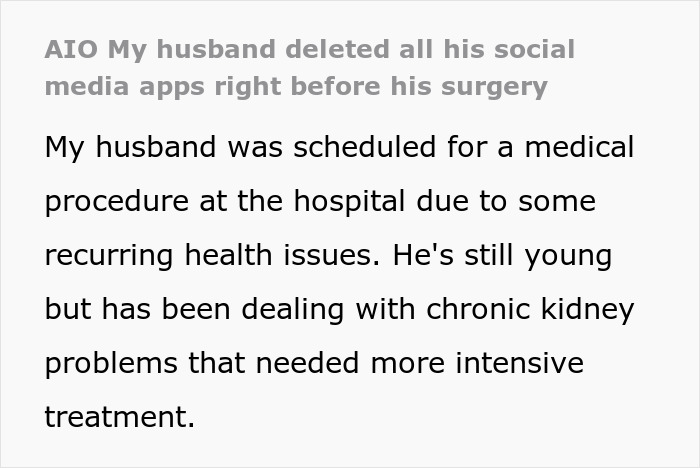



Image credits: freepik (not the actual photo)
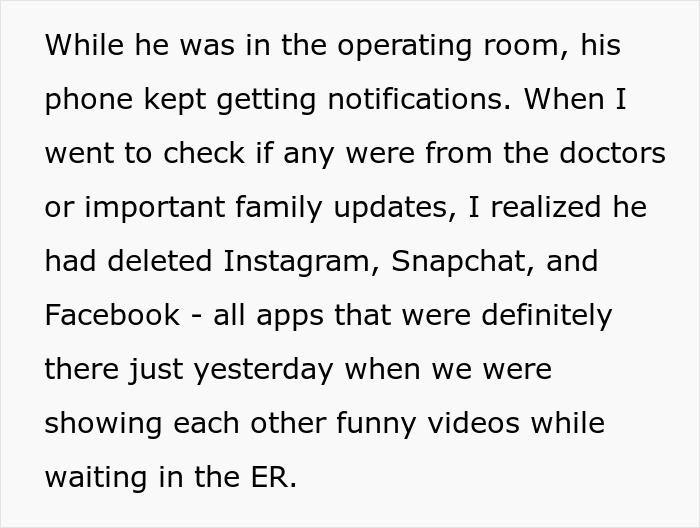
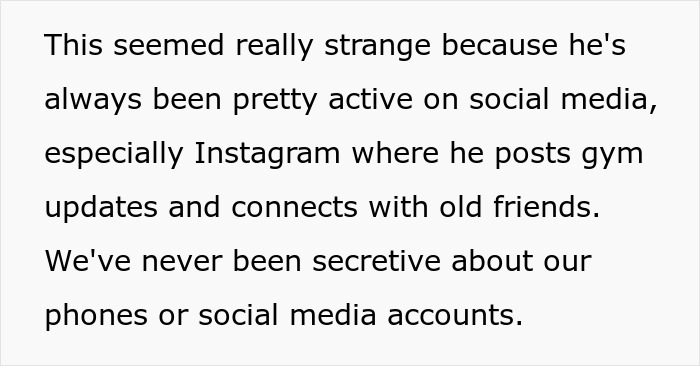


Image credits: freepik (not the actual photo)

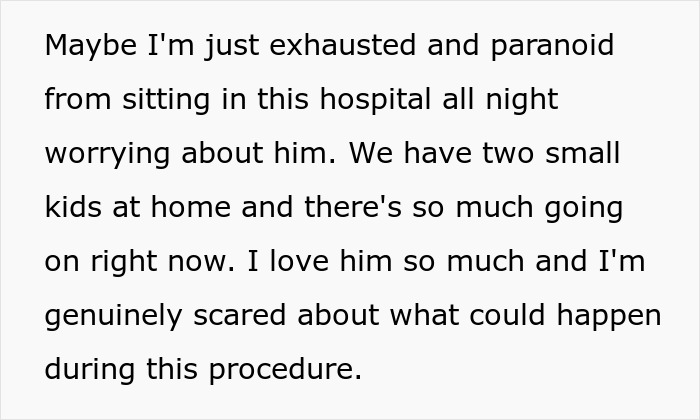

Image credits: Electrical-Gap2122
What to do if you can’t stop doubting your partner

Image credits: cookie_studio / freepik (not the actual photo)
Trust can feel complicated. As adults, many of us have lived through disappointments, heartbreaks, and broken promises. It often takes time to let someone in, open up, and build a relationship. Yet once that trust is broken, it can feel like it happens in an instant.
One survey found that only 70% of people say they completely trust their partner. While that might seem like a solid number, it also means nearly a third don’t, which is sobering when you think about it.
Another study by the Pew Research Center shows just how fragile trust can be: about one in three people in committed relationships admit to checking their partner’s phone. That kind of doubt can weigh heavily on a relationship. Left unchecked, mistrust can quickly snowball into suspicion, anxiety, and constant worry.
So, how can you strengthen trust? Contemporary mental health service Self Space offers some helpful advice:
1. Be open, acknowledge feelings, and practice vulnerability
When mistrust starts brewing, silence only makes it worse. If you need reassurance, ask for it. If you’re feeling insecure, share it. Let your partner in on how you feel, what you hope for, and how you want to show up for each other.
2. Assume your partner has good intentions
Not every mistake is a betrayal. Sometimes people simply mess up without meaning harm. Before jumping to conclusions, consider that it could be a misunderstanding rather than deliberate hurt.
3. Communicate honestly about important issues
Make time to check in daily and talk about how things are going. Don’t let problems pile up—bring them into the open. Start small and speak from your own perspective: “I feel…,” “I notice…,” “I wonder….”
4. Notice how past experiences shape your present
Take a moment to reflect: is your doubt coming from what your partner has actually done, from your own insecurities, or maybe both? Sometimes pain from earlier relationships can quietly influence how much we trust today.
5. Hear your partner’s side
Give them room to share their view. Ask questions like: “How did you see things? What was your experience? How did it feel for you?” Listening with curiosity can open the door to rebuilding trust.
6. Trust your intuition
Pay attention to red flags, and don’t ignore your gut feelings. If something doesn’t sit right, bring it up. Voicing concerns early prevents them from festering.
7. Be clear about your needs
Getting upset when your needs aren’t met is natural, but have you made them clear? Your partner isn’t a mind reader. Often, it’s about teaching them how to meet your needs so both of you feel supported.
At the end of the day, trust is built step by step—through openness, honesty, and patience. It’s fragile but not unfixable, and with consistent effort from both partners, it can grow stronger than ever.
Many readers found the husband’s actions incredibly suspicious


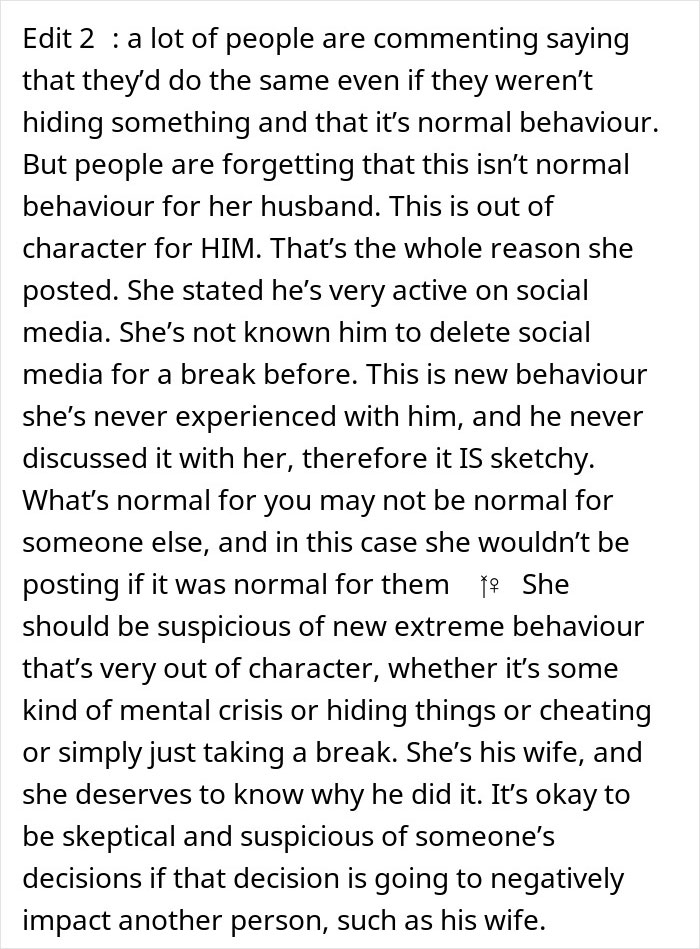











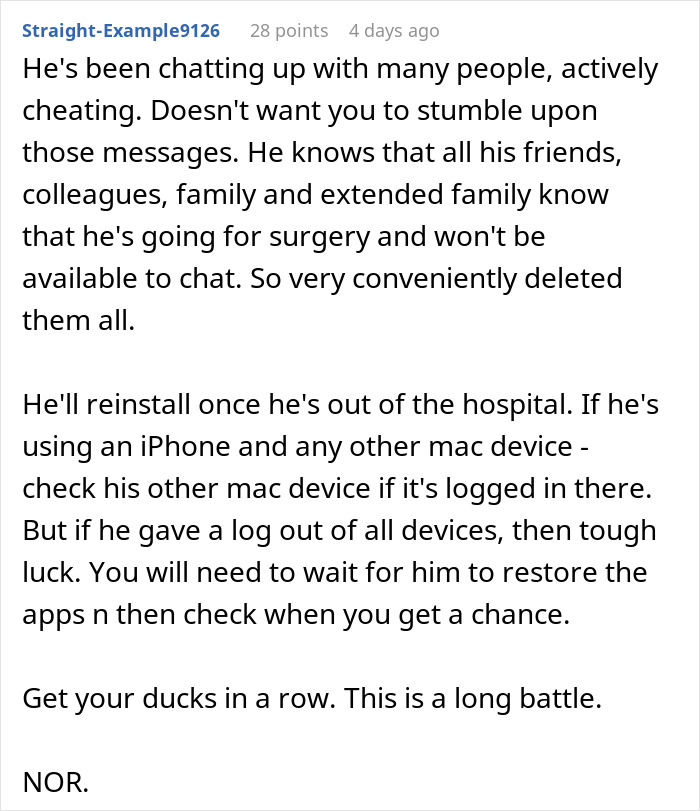








Others chimed in with similar stories of their own


 Follow Us
Follow Us





